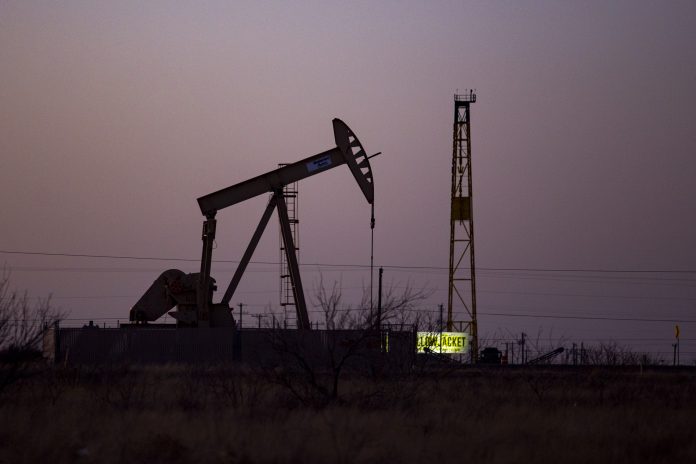
The issue of what to do with produced water contaminated by its use in fracking is being dealt with in a variety of ways that are becoming more creative and effective by the year.
That’s according to the Texas Independent Producers & Royalty Owners and Texas Oil & Gas associations and the Apache Corp., who say great progress has been made.
TIPRO President Ed Longanecker said operators in the Permian Basin and throughout Texas are dedicated to producing oil and gas in a responsible manner.
“A key part of the industry’s environmental efforts focuses on water management,” Longanecker said from Austin. “In fact only 2 percent of the state’s total water consumption is used for oil and gas extraction.
“Still the industry remains committed to improving its use of fresh water, leading to innovations in water treatment that facilitate the use of recycled water in oil and gas production.”
He said this has resulted in some operators successfully reusing and recycling between 52 and 100 percent of the water used in production.
“Additionally, approximately 11 million of the 14 million barrels of produced water per day from the Delaware and Midland basins are now recycled by local industry,” Longanecker said. “The Lone Star State’s oil and gas industry is setting global standards for responsible water management, highlighting one of the countless benefits of producing in America.”
TXOGA President Todd Staples said the Texas oil and natural gas industry has aggressively worked for decades to reduce the use of freshwater in their exploration and production activities.
“Thanks to the industry’s commitment to innovation and technological advances, newer and better ways to manage produced water from operations are being developed including through the use of brackish groundwater and recycled produced water,” Staples said from Austin. “Industry and academia also continue to explore alternatives to wastewater injection through market-based water reuse and recycling as well as innovative pilot programs and collaboration with the Produced Water Consortium led by Texas Tech University and through participation in the Texas Seismicity & Water Partnership.”
As a result, he said, the energy industry is at the forefront of water conservation, innovation and sustainability efforts in Texas.
“The industry will continue to adhere to the highest environmental standards in all its operations to ensure that these irreplaceable resources are produced for years to come,” Staples said. “In addition to recycling within the industry many companies are actively engaged in pilot projects using treated produced water for other beneficial purposes outside the oilfield.”
He said those include a group of companies that is collaborating on a project in Culberson County and has successfully completed the first of 3 desalination technology pilots and a company that’s looking at using recycled produced water for industrial uses such as cooling towers for power and industrial plants.
“A water midstream company is conducting a pilot project irrigating winter wheat and cotton with treated produced water and is successfully generating distilled water with lower-than-expected energy consumption,” Staples added.
Van Horn, 160 miles west-southwest of Odessa, is the county seat of Culberson County.
Jessica Jackson, Apache’s vice president of environment, health and safety, said her company seeks to minimize its use of fresh water by finding innovative ways to recycle produced water, source other alternatives to fresh water and reduce the overall amount of water required for its operations.
“In 2023 we set a goal to use at least 50 percent recycled produced water for completions in U.S. onshore operations and we achieved this goal using 61 percent recycled produced water,” Jackson said from Houston. “Most of our produced water is reused for secondary oil recovery by being re-injected into the field where it originated.
“We also recycle produced water by using it in hydraulic fracturing fluids.”
Jackson said Apache’s upstream oil and gas operations continuously generate produced water that must be safely managed.
“We have implemented a variety of technologies and treatment processes that allows us to store larger volumes of treated produced water for longer periods including the use of multiple smaller impoundments and the application of advanced chemistry,” she said. “Increasing the volume of our storage capacity allows us to hold produced water longer so we can reuse it even when immediate operational needs do not align with the volume of produced water generated at any point in time.”
Jackson said these capacity and treatment enhancements together enable Apache to better match the availability of recycled water to its operation schedules and to increase the proportion of recycled water that it is able to use.
“In our U.S. onshore operations we take strict measures to store produced water in a manner that reduces the risk of impacts on soil, groundwater and surface water quality,” she said. “Once treated, recycled produced water is stored in engineered double-lined impoundments equipped with leak detection technology or in tanks that are routinely inspected and monitored.
“Another benefit of the water-related infrastructure investments we have made within our U.S. onshore operations is the ability to safely move water through pipelines instead of trucks. This reduces trucking-related emissions, minimizes the potential for spills during loading and unloading and lessens impacts from heavy trucks on local roadways.
“Since 2020 all the water used in our hydraulic fracturing operations in the Permian Basin has been transported by either permanent or temporary pipelines.”



